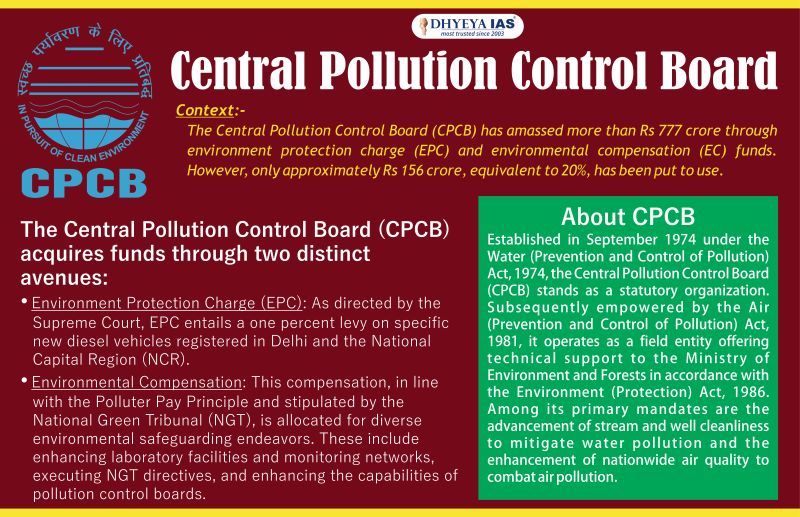Context: The Central Pollution Control Board (CPCB) has amassed more than Rs 777 crore through environment protection charge (EPC) and environmental compensation (EC) funds. However, only approximately Rs 156 crore, equivalent to 20%, has been put to use.
The Central Pollution Control Board (CPCB) acquires funds through two distinct avenues:
- Environment Protection Charge (EPC): As directed by the Supreme Court, EPC entails a one percent levy on specific new diesel vehicles registered in Delhi and the National Capital Region (NCR).
- Environmental Compensation: This compensation, in line with the Polluter Pay Principle and stipulated by the National Green Tribunal (NGT), is allocated for diverse environmental safeguarding endeavors. These include enhancing laboratory facilities and monitoring networks, executing NGT directives, and enhancing the capabilities of pollution control boards.
|
About CPCB Established in September 1974 under the Water (Prevention and Control of Pollution) Act, 1974, the Central Pollution Control Board (CPCB) stands as a statutory organization. Subsequently empowered by the Air (Prevention and Control of Pollution) Act, 1981, it operates as a field entity offering technical support to the Ministry of Environment and Forests in accordance with the Environment (Protection) Act, 1986. Among its primary mandates are the advancement of stream and well cleanliness to mitigate water pollution and the enhancement of nationwide air quality to combat air pollution. |







